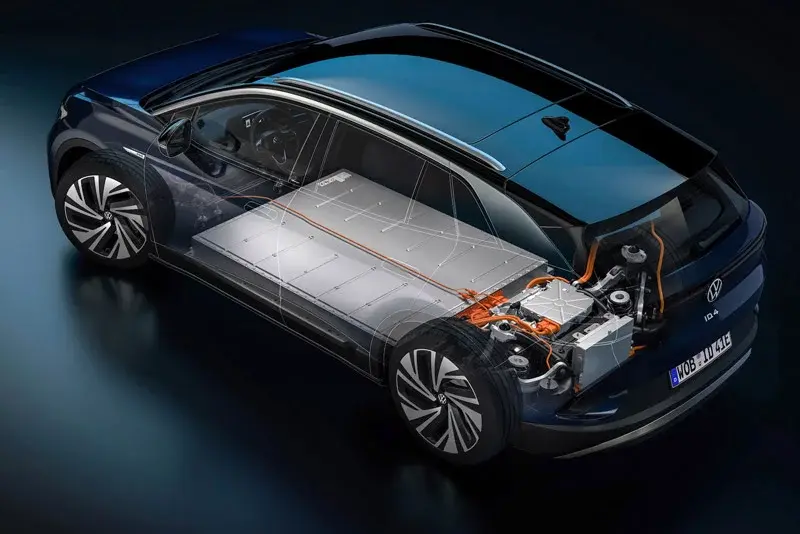Battery for electric cars: how does it work and how to choose ?
- yassine zeddou
- Sep 23, 2024
- 4 min read
Updated: Dec 12, 2024

With the growing popularity of electric vehicles worldwide in recent years, interest in their batteries has surged. These batteries serve as the primary energy source for EVs, making their selection a crucial factor when purchasing a vehicle. Battery for electric cars: how does it work and how to choose? This question has become increasingly important for buyers seeking efficient and reliable options.
How does an electric car battery work ?
Here is some information that will help you better understand how electric car batteries work
What role does a battery play in driving an electric vehicle ?
Batteries are an important component of electric vehicles. It stores the electrical energy used to drive the electric motor of the vehicle. The car is powered by a charging system that uses a power outlet, a public charging station, or a quick charger installed at home.
What are the batteries for electric vehicles made of ?
Batteries for electric vehicles typically consist of lithium-ion battery cells and are coupled to modules. These modules are assembled to form electric vehicle batteries. The battery cell is made of lithium and other metals and is separated by an electrolyte.
How are batteries made for electric vehicles?
The production of batteries for electric vehicles is a complex and expensive process. The battery cells are manufactured in a specialized factory, then assembled into modules and transported to the automotive assembly plant. Battery manufacturers use state-of-the-art technology to produce lighter and more powerful durable batteries
What are the types of batteries for electric vehicles ?
There are several types of batteries for electric vehicles on the market, each of which has its advantages and disadvantages:
_ Lithium-ion batteries are the most widely used and used in most electric vehicles on the market today. They are lightweight, compact and offer moderate autonomy.
_ Nickel-metal hydride (NiMH) batteries are also used in some electric vehicles, but are less common. They are heavier and less efficient than lithium-ion batteries, but cheaper.
_ Solid-state batteries are an emerging technology that can provide higher energy density and longer life than lithium-ion batteries. However, they are still in development and are not generally available in the market.

How to choose the right battery for your electric car.
You are wondering which battery to choose. Here are some things to keep in mind.
Capacity and autonomy
Battery capacity and range are important criteria for choosing the right battery for your electric vehicle. Battery capacity is expressed in kilowatt-hours (kWh), which determines how much energy a battery can store. The higher the battery capacity, the greater the range of the car. However, the range of the vehicle may vary depending on other factors.
Charging power
Charging power is also an important criterion when choosing a battery. Determine how quickly the battery can be recharged. If you travel long distances or use electric vehicles frequently, a battery with a high charging capacity may be desirable
Reliability and durability
Reliability and durability are also factors to be considered. Replacing an electric car battery can be expensive. Therefore, it is important to choose a reliable and durable battery to avoid unnecessary costs in the long term. It is also important to consider battery warranty and replacement policies
Cost
Another important factor is the initial cost of the battery.1 Batteries for electric vehicles can be expensive, so it's important to find a balance between capacity, charging power, reliability and cost. It is also worth considering long term replacement and maintenance costs
Cost and maintenance of electric vehicle batteries
Buying a battery is one thing, and taking care of it, or replacing it, is another. Here is some additional information to consider.
Cost for battery purchase and replacement
The cost of buying a battery depends on its capacity and charging power. In general, larger, more efficient batteries will cost more. The cost of replacing the battery also depends on the capacity and charging power, as well as the average life expectancy.
Battery maintenance and repair costs
Batteries for electric vehicles require less maintenance than internal combustion engines, but require some maintenance to function properly. Battery maintenance cost includes checking battery voltage, checking battery status and replacing faulty cells
Warranty and insurance for batteries
When buying an electric car, it is important to check the warranty and insurance of the battery. They may vary by battery manufacturer and vehicle. Some warranties may cover the cost of replacing the battery in the event of a failure, while others may only cover the cost of repairs
Optimize the service life of electric vehicle batteries
To avoid replacing your car battery, you can optimize its service life. You can find a way to do it here.
Precautions to protect the battery
There are some precautionary measures that electric vehicle owners can take to extend battery life. For example, it is recommended not to discharge the battery completely, as it can damage the battery cell and reduce its capacity. In addition, it is important not to expose the battery to extreme temperatures.This can lead to a shorter life.
Factors that reduce battery Life
Certain factors can shorten the life of the battery, such as excessive use or misuse, extreme temperatures, frequent or too fast charging, and complete discharge of the battery.
Technology to extend battery life
There are several technologies that electric vehicle owners can use to extend battery life. In addition to the above information, you can use applications that optimize the service life or use a wall box instead of the usual household outlet for charging.

The latest battery technology for electric vehicles: Advantages and disadvantages
The latest battery technologies for electric vehicles are constantly being developed to improve their range, charging performance, reliability and durability. The advantages of these technologies include longer battery life, faster charging performance, longer service life and improved reliability.
conclusion
choosing a suitable battery for an electric vehicle is an important process that requires consideration of several factors, including the capacity of this equipment, charging power, reliability and cost.





Comments